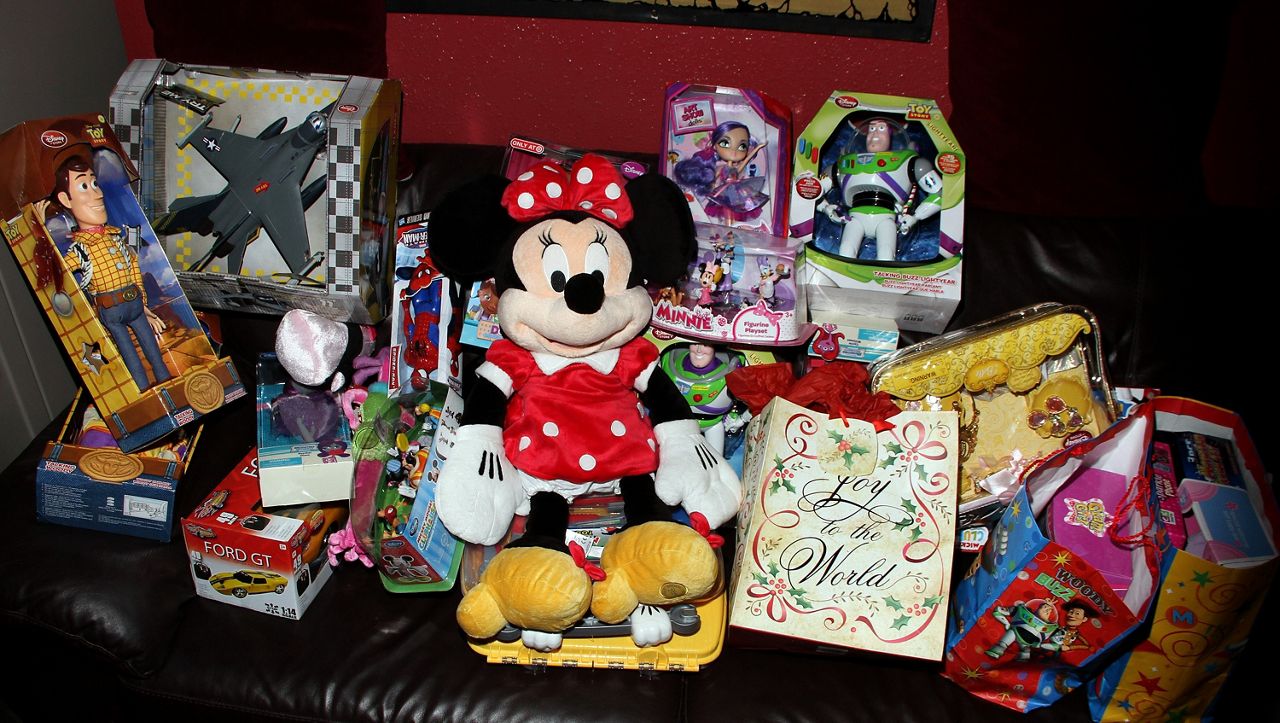LOS ANGELES — Parents in the Southland know the dangers of recalled and counterfeit toys for children as the holiday season fast approaches, but gift items shipped from overseas can be equally hazardous, a consumer advocate group warned Tuesday.
That's because when a toy or other product is purchased online from another country and shipped directly to a consumer in the United States, it generally does not get inspected before it's delivered, according to the California Public Interest Research Group.
"Once the products arrive at your home or in the warehouse of an online seller, if regulators find out about any dangers — from consumers, retailers or their own investigators — they often are powerless to stop the online sales or take the sellers to court to pursue recalls," CALPIRG's annual Trouble in Toyland report says.
The 2024 survey, issued Tuesday, concludes that the growing problem of unregulated overseas shipments of toys and other items are made possible by aggressive marketing from international sellers, incomplete domestic laws and the popularity of online shopping that surged during the coronavirus pandemic.
Officials often have no idea what's coming into the country because of legal loopholes and the sheer volume of shipments, according to CALPIRG legislative advocate Fiona Hines.
The consumer group said that direct-to-consumer items from another country — while inexpensive and easy to find — can put families at risk. Online retailers, which don't have to follow the same laws as brick-and-mortar stores, and lower-tier physical stores that may not vet sellers as well as larger chains, may also market items that can be hazards, CALPIRG said.
Among toys that were the subject of violation notices by U.S. authorities are games, infant busy boards, educational toys, children's jewelry, blocks, plastic ride-on toys, baby teethers and stuffed animals, consumer advocates said.
The proliferation of toys from overseas manufacturers that are often sold under the radar online is a recent phenomenon, CALPIRG's report stated.
The Trouble in Toyland survey also focused on concerns about water beads, smart toys that invade children's privacy, high-powered magnets, button cell batteries and the ease with which consumers can still buy recalled toys, even though it's illegal to sell them.
The group warned that because water beads — tiny, squishy balls that look like candy and are marketed as a "sensory toy" — can expand many times their original size when exposed to water, they present special dangers to children.
"If it's swallowed or inserted into an ear canal, the water beads absorb bodily fluids and expand," CALPIRG said in the report. "This can and has led to a blocked airway, intestinal or bowel blockage, lung or ear damage and other life-altering injuries."
The report said that about 7,800 children were treated in emergency rooms from 2016 through 2022 for injuries or illnesses caused by water beads, according to the U.S. Consumer Product Safety Commission.
As for so-called "smart" toys, the group advised parents to find out whether the item is collecting information about the child, or transferring such information to another company besides the manufacturer.
"Best to find manufacturers and toys that don't share any data at all," according to the report.
Dr. Helen Arbogast, manager of the Injury Prevention Program at Children's Hospital Los Angeles, said choke hazards for children are an ever- present danger when buying toys. She called out button batteries — those flat cell batteries that look like air tags — as being of particular concern this season, especially for children under 5 years old.
Arbogast suggested a sure test of an item to determine its danger of causing choking. If an item falls through a toilet paper roll, "it is a choke hazard," she said.



